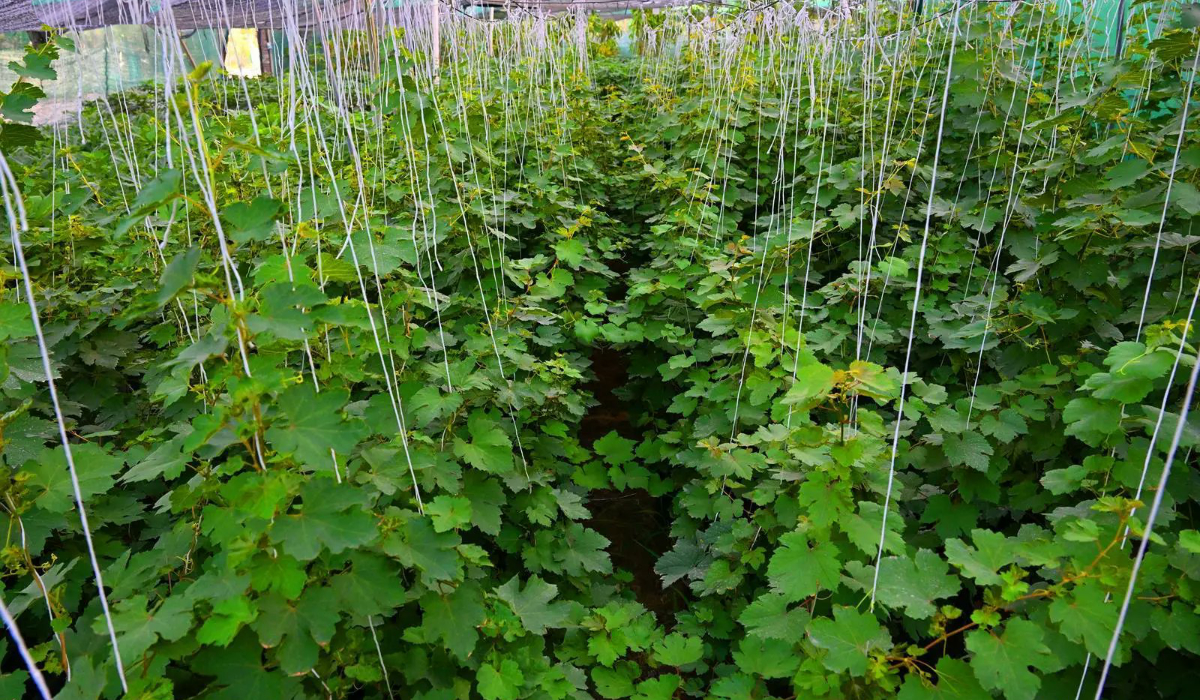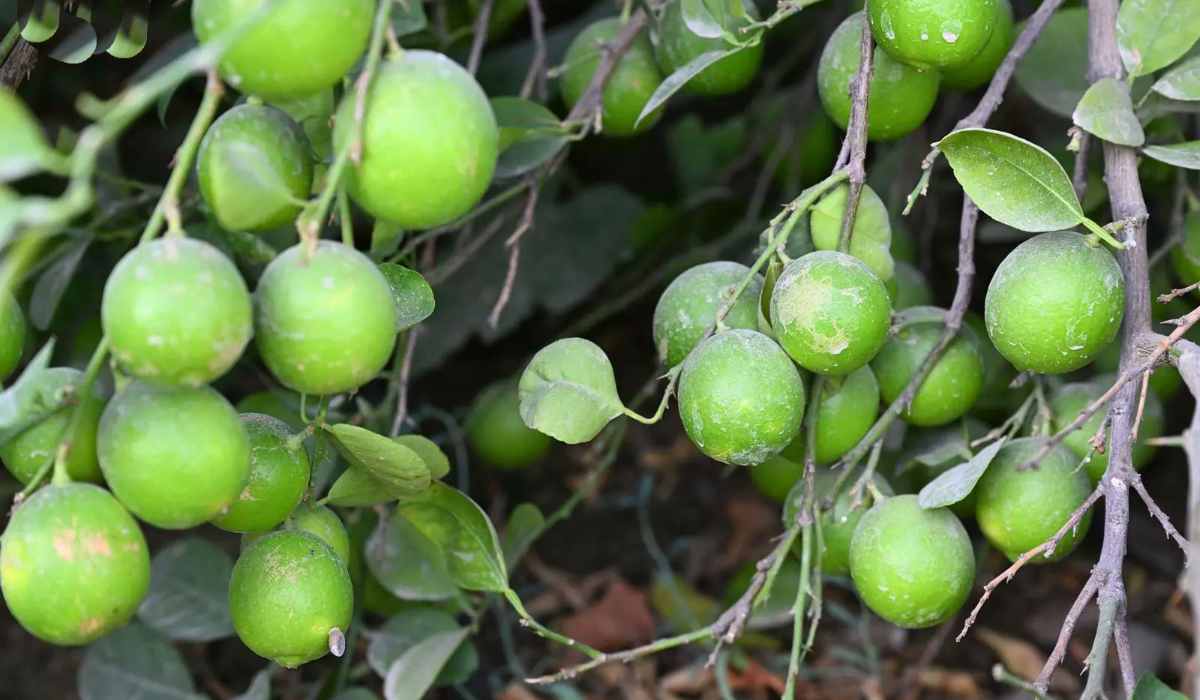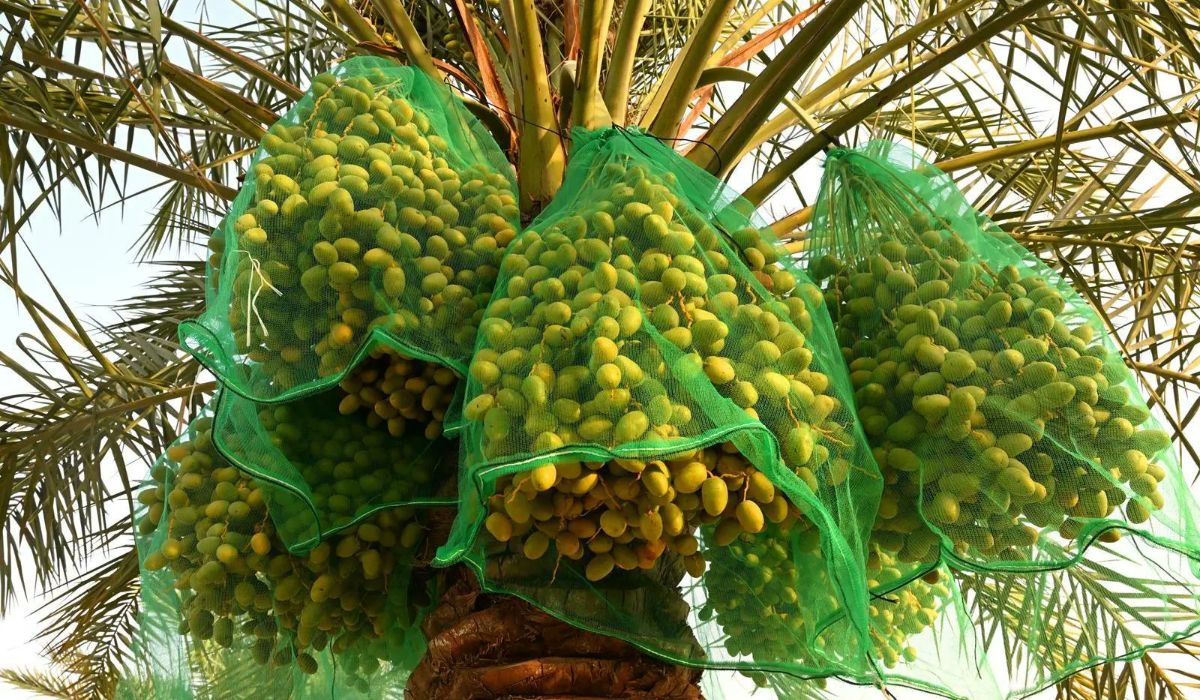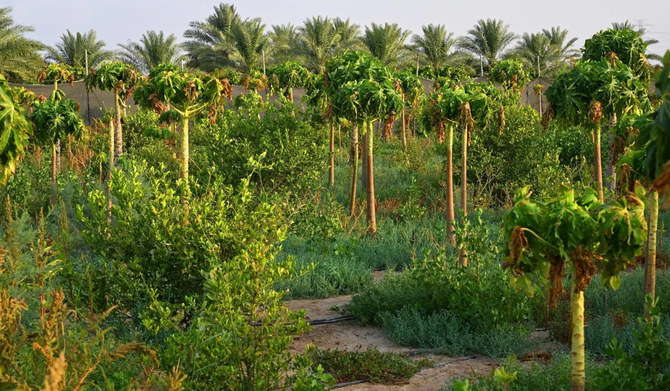RIYADH: The farms of Qatif Oasis are playing a crucial role in supplying fruit and vegetable markets throughout Saudi Arabia’s Eastern Province. From Al-Khafji in the north to Al-Ahsa in the south, they provide a wide variety of seasonal produce including vegetables, fruits and fresh dates.
Spanning some 800 sq. km from Safwa to Dammam, Qatif governorate is home to over 3,700 farms of which 2,454 are actively producing a variety of crops, reported Saudi Press Agency.
The region boasts more than 540,000 fruit-bearing palm trees, representing 30 different types of dates. Annually, the farms contribute 29.5 tonnes of dates to local markets.

A crucial role is played by the farms of Qatif Oasis in supplying fruit and vegetable markets throughout Saudi Arabia's Eastern Province. (SPA)
Fahd Al-Hamzi, director of the Eastern Province branch of the Ministry of Environment, Water, and Agriculture, highlighted the ministry’s efforts to support and develop the province’s agricultural sector.
Initiatives include improving resource management, promoting strategic crops, producing crops that contribute to increased economic competitiveness, and encouraging organic farming. The ministry also provides training programs and financial support, helping farmers find new outlets for their products.
Al-Hamzi said the branch supported programs through the Saudi Reef platform and marketed agricultural products through events and festivals in the region’s cities and governorates.

A crucial role is played by the farms of Qatif Oasis in supplying fruit and vegetable markets throughout Saudi Arabia's Eastern Province. (SPA)
He added the ministry was working to educate farmers on production and harvesting processes. It also raises awareness about the importance of utilizing the Saudi Dates platform, launched by the National Centre for Palms and Dates, to increase sales by creating new outlets.
The agricultural sector has also received significant attention from the Saudi government, which has implemented laws to protect palm trees and improve date production efficiency. As a result, the Kingdom has become one of the world’s leading producers of dates and related products.
Future plans for regional agriculture include introducing modern technologies, improving irrigation systems, enhancing infrastructure, developing scientific and technical research, and establishing processing factories.

A crucial role is played by the farms of Qatif Oasis in supplying fruit and vegetable markets throughout Saudi Arabia's Eastern Province. (SPA)
The ministry is also working on creating electronic platforms to streamline agricultural services and is encouraging farmers to obtain organic or Saudi Good Agricultural Practices certification.
Local farmer Mohammed Al-Thawab emphasized the long-standing agricultural tradition in Qatif, praising the region’s fertile soil and abundant water sources.
“These factors have contributed to the production of a diverse array of fruits, vegetables and fresh dates, which supply the region’s produce markets with a steady stream of local, high-quality goods,” he said.

A crucial role is played by the farms of Qatif Oasis in supplying fruit and vegetable markets throughout Saudi Arabia's Eastern Province. (SPA)
He commended the ministry’s agricultural programs and initiatives, which have helped educate farmers about modern agricultural practices and the timing of land preparation, sterilization and seed sowing.
Al-Thawab also highlighted the significant impact of regional agricultural events such as the Leafy Greens and Dates Festival, which have proved instrumental in promoting farm products and bolstering support for the governorate’s agricultural community.
The impact of these efforts is evident in the local markets. Fruit and vegetable seller Abdullah Khuraydah said markets in Qatif and Dammam received a diverse range of seasonal products throughout the year.
These include local figs, Qatif lemons, pomegranates, berries and almonds, in addition to various types of dates. The most prominent of these are Al-Maji and Al-Gharra dates.
“The date season is a critical period for local merchants,” Khuraydah said, noting the surge in consumer demand for this nutritionally rich fruit. He emphasized Qatif’s unique agricultural advantages, citing its fertile soil and plentiful water from natural springs and aquifers.
“These natural assets are key to our region’s reputation for producing abundant, top-quality harvests,” he said.
































